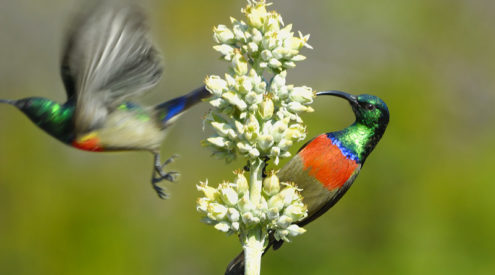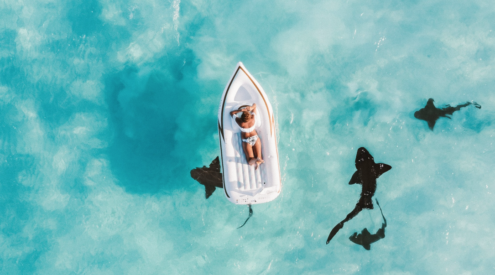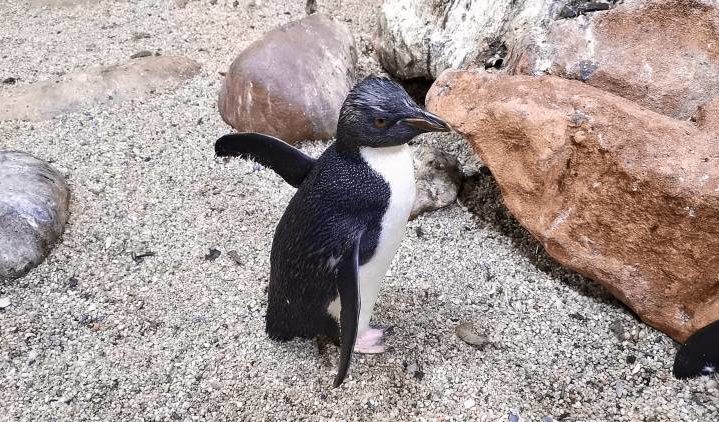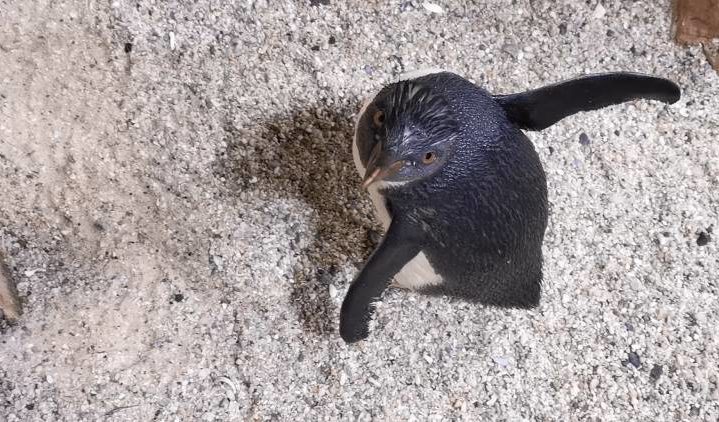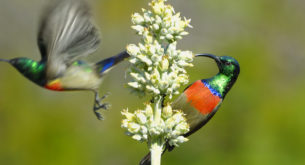On 28 June 2019 a young rockhopper penguin arrived at Cape Town international Airport, from East London. After spending a month in quarantine at SANCCOB, this penguin has now found its new forever home at the Two Oceans Aquarium.
The tiny, juvenile rockhopper penguin had washed up on the Eastern Cape coast and was found by members of the public near East London. It underwent initial rehabilitation at the East London Aquarium, and once stabilised, the young bird was flown to Cape Town so that it could find a home in the rockhopper penguin colony at the Two Oceans Aquarium.

‘EL’ the rockhopper penguin, Two Ocean Aquarium. Image credit: Two Oceans Aquarium.
The young rockhopper spent a month in SANCCOB’s Intensive Care Unit where a bone infection was identified in both of its feet. Luckily, treatment was able to begin early and despite having a really odd gait, this rocky is now in excellent health.
‘SANCCOB and the Two Oceans Aquarium have a long history of working together. Their help is always indispensable when it comes to caring for new bird arrivals at the Aquarium,’ said Shanet Rutgers, Penguin Keeper at the Two Oceans Aquarium. ‘
SANCCOB’s excellent team of veterinary staff and volunteers took it upon themselves to fatten up this malnourished little bird, and give it a full panel of health screenings. We are incredibly grateful for their assistance and support.’
On 29 July 2019 the penguin was transferred to the Two Oceans Aquarium and was introduced it to its new penguin (and human) family. The young rocky needed a name – and the Aquarium left it to members of the public (via social media) and Aquarium staff to select one. More than 180 suggestions were put forward, and a clear favourite emerged – ‘EL’. It’s short for East London, and a nod to all the Stranger Things fans that voted.
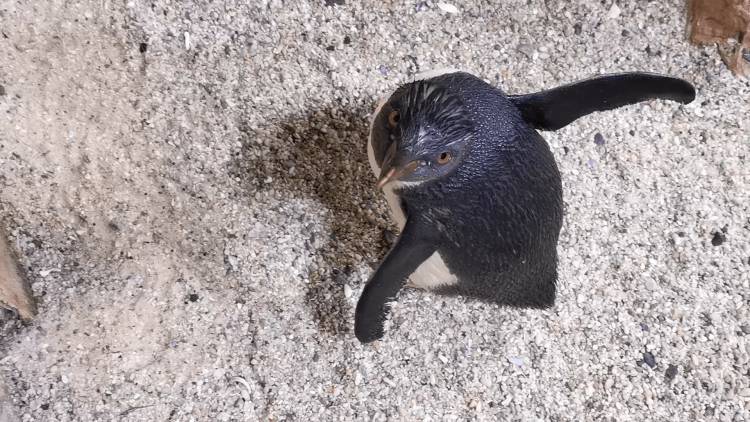
‘EL’ the rockhopper penguin, loves exploring. Image credit: Two Oceans Aquarium.
Young EL is still nervously getting to know the other penguins, although spirits are high and we have no doubt that this bird will soon be the most popular youngster on the beach. EL is already making friends with her new human family, and uses every opportunity to explore the Aquarium. At this stage it is still unclear whether EL is male or female.
Also watch: Meet the oldest resident of the Two Oceans Aquarium
Why is EL at the aquarium? Why wasn’t EL released?
Northern rockhopper penguins are native to several sub-Antarctic islands thousands of kilometres from the South African mainland, and it is unlikely that a penguin this young, still with part of its chick ‘fluff’and not fully coated in waterproof feathers, could have survived the swim. It’s likely that this penguin was poached by fishermen nearer to its colony and kept on the boat, then thrown overboard when the boat neared South African waters to avoid being fined by the authorities.
It is difficult to prove that poaching and unethical fishermen are responsible for the stranding of rockhopper penguins, but we do know for a fact that some of them have been in the hands of poachers. For example, Teddy the golden oldie of the Two Oceans Aquarium rockhoppers was rescued with his feet tightly bound together with wire. We could speculate that EL’s foot injuries are due to the same reason, but we will never know for certain.
The nearest northern rockhopper penguin colonies to the Cape are those on Tristan da Cunha and Gough Island – both more than 2,500km away.
The distance however, is not the reason this young penguin cannot be returned home. The colony that tthe penguin comes from can’t be acsertained, so releasing it into the wild means potentially contaminating the gene pool of the wild colonies.
It could also mean that pathogens not found around these islands, but which are present in South Africa’s coastal waters, could be introduced into these colonies, further endangering the wild penguins. This, unfortunately, is the fate of all sub-Antarctic penguins that reach the South African coast.
EL will remain at the Two Oceans Aquarium, where the penguin will live among the largest colony of northern rockhopper penguins in South Africa, be cared for by the Aquarium team of professionals, loved by thousands of visitors and will help contribute to veterinary and biological research.
See more on EL here.
Source: Two Oceans Aquarium





